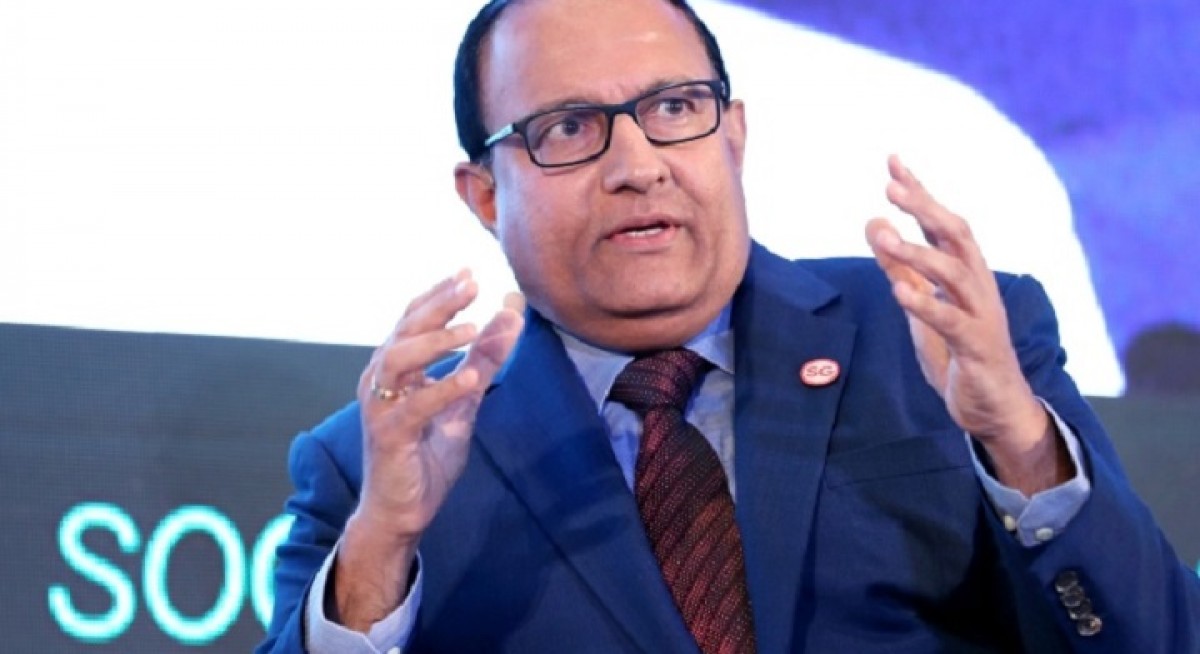More than just developing successful application solutions that can be used in Singapore, Iswaran says these solutions should also be scalable across the region. “We have issued what we called ‘grand challenges’ for AI. We want the private sector to come in and be partners with us in finding solutions to these grand challenges.”
The way Iswaran sees it, the flow of data needs to be free to derive value from it — the same way Singapore has been a beneficiary of free and open trade. He believes public-private partnerships can help allay fears over the breach of confidentiality and data security in cross-border exchanges.
“Many countries are concerned about the confidentiality and security of data… There are security considerations which are legitimate, but we also feel [they] should not be a barrier to the flow of data,” says Iswaran. “If you curtail the flow of data, you curtail the value derived. And, actually, [flow of data] is good for the country’s own interest.”
Already, tech leaders in Asia have warned that the ongoing trade war between the US and China is fragmenting the global industry and threatening collaboration in key research areas.
To combat these broadening risks, Iswaran says Singapore needs to find like-minded partners across the world and continue to build bridges despite the geopolitical tensions. He highlights recent digital economy agreements that Singapore has inked with New Zealand and Chile.
The minister acknowledges that Singapore is unable to compete with the sheer scale and level of resources that countries such as the US and China possess. “We take a very targeted, purposeful approach in terms of what we’ll fund,” he says. And more than just financial funding, he says Singapore will also work at mobilising talent — “not just Singapore talent but global talent” — for the application solutions.
“That’s why we’ve put out the call for international talent, called Tech@SG, to draw in the capabilities to work on interesting, promising areas,” he adds.
These remarks echo Minister for Trade and Industry Chan Chun Sing’s reply to a question in Parliament on Sept 2 on the need for Tech@SG. Chan said talent was critical in the effort to develop Singapore’s tech ecosystem and in effect create more opportunities for Singaporeans. While Singapore had initiatives such as the TechSkills Accelerator, and tertiary institutions were training new talent in tech-related courses, these efforts were not enough, he added.
“These efforts are insufficient because demand for tech talent is far outstripping local supply. This is not just a Singapore issue. It is a global challenge. Companies have also given our agencies feedback that we lack experienced software engineers and product managers. They are looking for people who can take charge of the development and rollout of digital products at a global scale instead of only working on specific components of the product,” Chan said.
He noted that there was a need to augment local workers with skilled workers from around the world to meet demands from companies. This would also improve Singaporeans’ competitiveness as they learnt to work with people from across the world.
“This is why we launched Tech@SG — to help fast-growth tech companies, both local and foreign, grow in Singapore. This programme is intended for companies with the commitment and ability to build teams and products in Singapore. They will have to be incorporated in Singapore, have a digital or technology offering or have a business model built around proprietary technologies, research or hardware.
“Tech@SG will enable such companies to put together globally competitive teams to develop their products and internationalise quickly. In addition, Tech@SG will raise the quality of tech talent in Singapore and create more opportunities for our tech experts to team up with the best from around the world.”
Local efforts are bearing fruit, as Deputy Prime Minister and Minister of Finance Heng Swee Keat noted in his speech at the opening ceremony for e-commerce platform Shopee’s regional headquarters on Sept 3.
“Existing initiatives under SkillsFuture and Adapt and Grow have shown good results. The training and job placement programmes under IMDA’s TechSkills Accelerator are also paying off,” he said.
Even as Singapore has embraced AI, one of the biggest worries it has triggered has been the potential loss of jobs. But while the government has pushed retraining and reskilling initiatives to help workers displaced due to digital disruptions, the head of a government-owned firm nurturing deep-tech startups in Singapore paints a more sobering picture.
Speaking at the same event as Iswaran, Steve Leonard, CEO of SGInnovate, said there were still important points to discuss and debate. “There will be job displacement, and it is going be asymmetric. I’m a big believer that there will be more loss than gain in the immediate term, and I don’t think that people can easily be retrained and reskilled.
“Some say tax the robots and create a different source of revenue for those that are ‘left behind’. [But] the more we can be honest, it leads us to the discussion of universal basic income, for example.”



